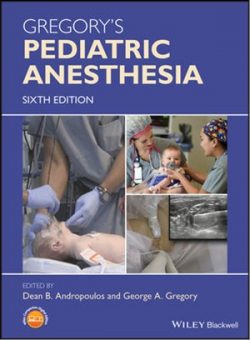GERD is the most common gastrointestinal disease in the world affecting over 10-20% of the adult population. GERD is often perceived as a Western disease and very little literature available about this disease in the Asian population. With growing obesity and westernization in Asia, the prevalence of GERD is rapidly increasing. With growing morbidity and health care cost there is a significant need for understanding the disease from the Asian perspective. This book would fill the gap in the knowledge on GERD among Asians and will highlight the difference in terms of epidemiology, diagnosis and management of GERD from the Western perspective. The novel imaging, diagnostic modalities and treatment aspects will be essentially highlighted in this book. It also deals about the pathogenesis and risk factors of Asians for the development of GERD which have not been explored before. Another important difference is that the book would be dealing with symptom perception and cultural factors affecting the diagnosis and management of this common disorder. Finally, the surgical outcomes of GERD among Asians will be discussed. Information on these topics is limited. In the face of higher obesity rates, increasing morbidity and health costs, this book fills a gap in knowledge of incidence of GERD among Asian populations, highlighting the factors of epidemiology, diagnosis and management from the Western perspective. .-Defining GERD in Asia: different from the West?.-Reasons for the rise of GERD in Asia: Obesity, H pylori and others.-Pathophysiology and acid production in Asians: different from the West? .-Diagnosis of GERD: clinical, pH, impedance: what is the best approach.-Role of endoscopy and advanced imaging in diagnosing GERD.-Medical therapy for GERD in Asian patients.-What to do when medical therapy fails in GERD patients? .-Surgical therapy for GERD in Asia.-Barrett’s esophagus in the Asian population.-Extra-esophageal GERD: myth or reality.-Terminology and cultural issues impacting GERD in Asia (symptom perception, treatment, alternative medicine etc) .-Future of GERD research in Asia Prateek Sharma is professor of medicine, division of Gastroenterology and Hepatology VA Medical Center University of Kansas School of Medicine Kansas City, MO. He was also the program fellowship director in the same department. He has numerous scientific publications and has authored four books apart from contributing chapters to many others. He is a reviewer/editorial board member of various prestigious journals such as: Indian Journal of Gastroenterology, American Journal of Gastroenterology, Clinical Gastroenterology and Hepatology. He is the recepient of Best Doctors in America award 2007-2008, Top Researcher of the Year – Midwest Biomedical Research Foundation, 2004, 2005, American College of Gastroenterology and The American Journal of Gastroenterology – Outstanding Reviewer Award, 2004 and Esophageal Clinical Research Award – Castell Award -American Gastroenterology Association (AGA), 2002.
Shobna Jangilal Bhatia is Professor of Gastroenterology at Seth GS Medical College and KEM Hospital, Mumbai, India. After completing her fellowship in Gastroenterology, Profesor Bhatia did an Advanced Fellowship Training in Esophageal Motility and pH under Dr. Donald O Castell.She has authored many important papers on esophageal motility and gastroesophageal reflux disease, irritable bowel syndrome and dyspepsia. She has also authored chapters on reflux disease and esophageal disease, as well as on scientific communication. She is coordinator for the Indian Society of Gastroenterology Task Force on gastroesophageal reflux disease, and is a core group member for the Task Force on irritable bowel syndrome. She has been involved in practice guidelines of World Gastroenterology Organisation for Gastroesophageal reflux disease and irritablebowel syndrome.She is involved as faculty in many workshops on Scientific Communication and Research Methodoly. She is Editor Emeritus of Indian Journal of Gastroneterology and continues to serve on the Editorial Board of this Journal. She is also editorial board member of World Journal of Gastroneterology. She is a recipient of the Unichem Lectureship in Gastroenterology, and Indian Society of Gastroenterology Olympus Mitra Award for Endoscopy.
Khean-Lee Goh is Professor of Medicine at the University of Malaya, Kuala Lumpur. He has authored many important articles particularly in the areas of Helicobacter pylori, gastroesophageal reflux and GI cancers and with a focus on epidemiology of these diseases in the Asian Pacific region and a doctoral thesis on Epidemiology of H. pylori in Malaysia. He is editor emeritus of the Journal of Gastroenterology and Hepatology (JGH) and is editorial board member of several international journals including the Alimentary Pharmacology and Therapeutics, Helicobacter, J Digestive Diseases, Digestive Diseases. He was awarded the prestigious national “Merdeka Award” for Outstanding Scholastic Achievement for “Elevating the Study and Practice of Gastroenterology and Hepatology in Malaysia to Global Standards” in 2011. In 2014 he also received the International Service at the American Society for Gastrointestinal Endoscopy (ASGE) Crystal Awards ceremony. In July 2016 he received a “Lifetime Achievement Award” from the Malaysian Society of Gastroenterology and Hepatology for his contributions to Malaysian Gastroenterology.
Provides Asian perspective on GERD





